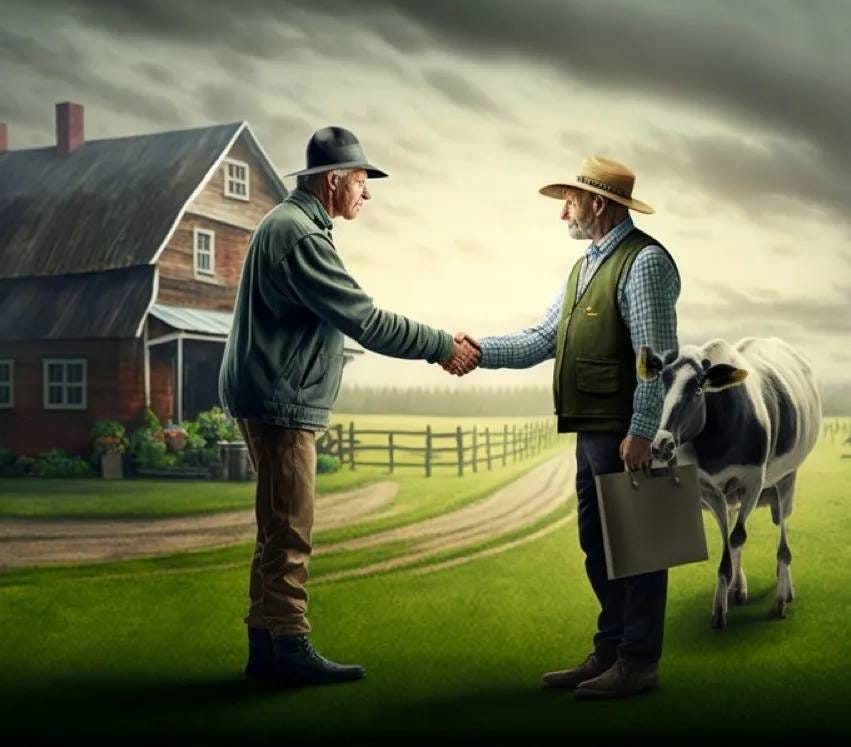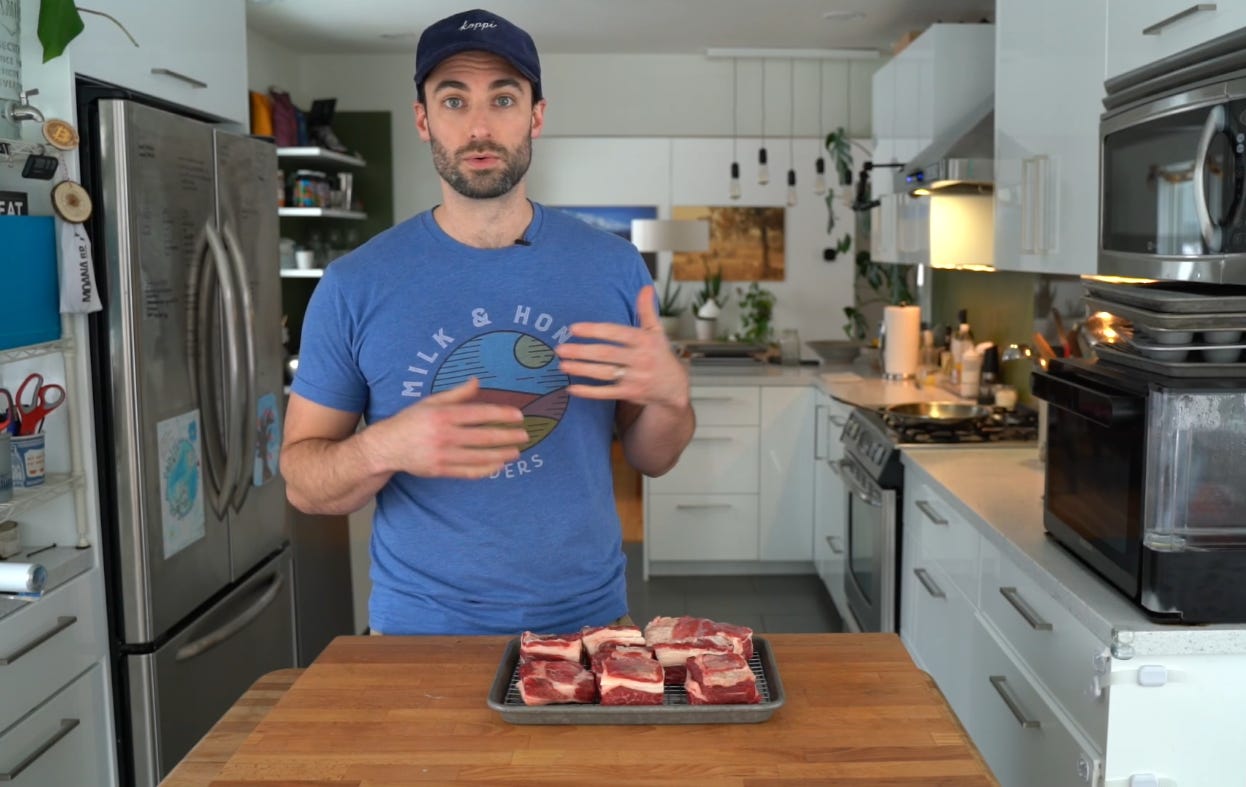Shake a farmer's hand
Sourcing tips and resources for your bulk purchase of beef (and food in general)
In previous articles we covered the primary questions to be answered before setting off on your quest to connect with a local farmer or rancher:
You’re now ready to search for a producer who can supply you with top-quality beef. A lot will depend on how near you live to farmers and ranchers. Urban environments may seem far removed from pasture land, but most major US cities have at least one farmers market. These are well worth visiting – not just to meet beef producers but also because of the other fresh seasonal items you’ll find, such as eggs, honey, fruit and herbs. Here’s a useful directory of farmers markets across the country: www.farmersmarketplaces.com (LPT: Before you go to a market, be sure to look through its list of vendors, so you can avoid ones that just sell soap bars, trinkets and the like.)
The advantage of finding a beef producer at a farmers market is that you can start the conversation there and sample products before taking the bigger step of visiting their farm or investing in a bulk purchase.
Unfortunately, not all farmers markets will have a good beef producer on hand, so you’ll need to take your search online. You could begin at eatwild.com, which has state-by-state listings of ranchers and farmers. But be aware that these are almost exclusively producers of grass-finished beef.
Another good resource is your local chapter of the Weston A. Price Foundation, which focuses on the sourcing good quality animal protein and other foods: www.westonaprice.org/find-nutrient-dense-foods - many local WAPF chapters have Facebook groups where you can ask other members for recommendations.
The USDA has a national portal for searching farms and markets, though this listing doesn’t seem complete. Still, there might be some options listed for your area that you wouldn’t otherwise find: www.usdalocalfoodportal.com
Some states have a website with a directory of small farm operations. Here’s an example of one for the state of Minnesota: https://minnesotagrown.com/member/
Finally, web searches using keywords like “regenerative” or “organic” beef along with your location should bring some useful results.
What questions should I be asking?
Many farmers have their own website where you can learn about their practices. This will allow you to vet the producers before you get to the market, as well as answering some questions you were going to ask them. When meeting them in person, you can get a sense of how much care they put into their work by their willingness to talk about the specifics of their operation.
Below is a list of questions I often have for a farmer as well as some of the answers I look for.
What do your animals eat?
If grain-finished, what is the supplemental feed? How quickly is it introduced?
Soy is to be completely avoided, if possible.
Corn is not as bad as soy, but still preferably avoided.
Barley, alfalfa, peas and other cover crops are ideal.
Do you use any chemicals/hormones/antibiotics?
While many argue that these won’t show up in the meat itself in high enough concentrations to be a concern, the use of these substances can mask underlying health issues that may impact the animal’s quality of life and the final output.
Are the cows bred on your farm or elsewhere?
The more an animal is transported, the more stress it experiences. It is also much easier for a farmer to know everything about a given animal if it has been in his care since day one.
How long does the butcher allow a side of beef to dry-age?
14 days should be the minimum; 21 days is ideal if they are willing to accommodate
Key Takeaways
Establishing a relationship with the farmer is crucial. People raising the animals will be delighted to meet a prospective customer as interested in the quality of their products as they are.
Search for farmers at markets, through local food groups or on the web.
Find out how they are raising the animals. Don’t trust, verify.
The Purpose of the Primal Cut Sheet
This is part of an ongoing monthly series that aims to provide you with all of the information you will need to start buying high-quality beef in bulk directly from a local producer. Future topics will include how to connect with your local producers, and a full breakdown of a butcher’s cut sheet to help you get the most value from your purchase.
If you’re looking to buy in bulk right away and would like some personalized assistance, I also offer 1:1 consultations to help you navigate cut sheets or answer any other questions you might have:
By being a paid subscriber, you help support my efforts to bring most of this content to the public free of charge and free of advertisements. Thank you.








